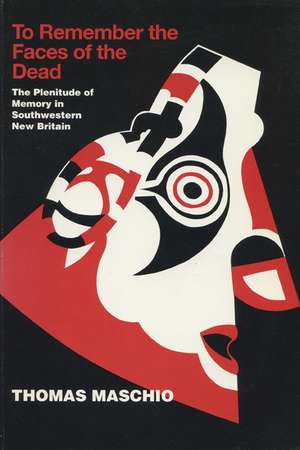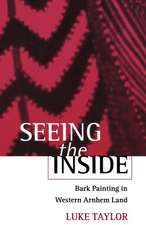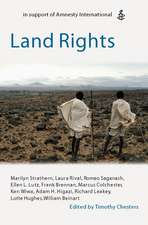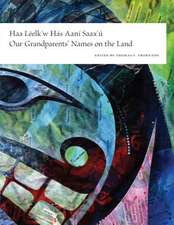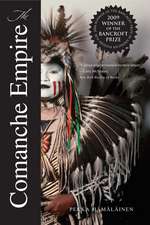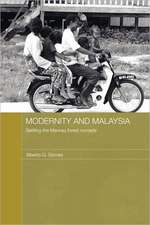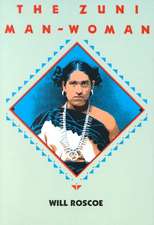To Remember The Faces Of The Dead: The Plentitude Of Memory In Southwestern New Britain: New Directions in Anthropological Writing
Autor Thomas Maschioen Limba Engleză Paperback – 14 apr 1994
As he challenges classical semiological accounts of cultural representation in this ethnography of Melanesian religious phenomenology, Thomas Maschio shows that ritual and poetic performance are about the enactment, expression, and invention of the self.
Maschio demonstrates how such emotions as nostalgia, anger, sadness, and grief are creatively transformed during the course of religious performance and expression into a form of cultural memory—one that juxtaposes a pattern of cultural meaning with the emotional feeling of plenitude the Melanesian Rauto call makai. Evoked during initiation, mourning, and agricultural rites, and figuring prominently in Rauto discourse about the self, makai joins personal memory to patterned sets of images and meanings that Westerners would call culture.
Maschio demonstrates how such emotions as nostalgia, anger, sadness, and grief are creatively transformed during the course of religious performance and expression into a form of cultural memory—one that juxtaposes a pattern of cultural meaning with the emotional feeling of plenitude the Melanesian Rauto call makai. Evoked during initiation, mourning, and agricultural rites, and figuring prominently in Rauto discourse about the self, makai joins personal memory to patterned sets of images and meanings that Westerners would call culture.
Preț: 137.46 lei
Nou
Puncte Express: 206
Preț estimativ în valută:
26.31€ • 28.56$ • 22.10£
26.31€ • 28.56$ • 22.10£
Carte disponibilă
Livrare economică 02-16 aprilie
Preluare comenzi: 021 569.72.76
Specificații
ISBN-13: 9780299140946
ISBN-10: 0299140946
Pagini: 256
Dimensiuni: 152 x 229 x 15 mm
Greutate: 0.36 kg
Ediția:New.
Editura: University of Wisconsin Press
Colecția University of Wisconsin Press
Seria New Directions in Anthropological Writing
ISBN-10: 0299140946
Pagini: 256
Dimensiuni: 152 x 229 x 15 mm
Greutate: 0.36 kg
Ediția:New.
Editura: University of Wisconsin Press
Colecția University of Wisconsin Press
Seria New Directions in Anthropological Writing
Recenzii
"Maschio uses the concepts and language of the Rauto people themselves to 'unpack' what might otherwise be considered a human anomaly–a minimalist culture, a people who live a rich emotional life but share the most stringent reservations against its figurative expression." —Roy Wagner, University of Virginia
"A first-rate ethnography of a little-studied area. Maschio reaches back to the ethnographic writings of French Melanesianist Maurice Leenhardt to ground his account of the emotive/expressive self in religious phenomenology. This complex reading of ritual and expressive culture connects with a growing number of contemporary ethnographies that put poetic utterances at the center of cultural articulations of self and society."—James Clifford, series editor
Notă biografică
Thomas Maschio received his Ph.D. in anthropology from McMaster University and his M.A. from New York University. He has taught at the American Museum of Natural History and New York University.
Descriere
As he challenges classical semiological accounts of cultural representation in this ethnography of Melanesian religious phenomenology, Thomas Maschio shows that ritual and poetic performance are about the enactment, expression, and invention of the self.
Maschio demonstrates how such emotions as nostalgia, anger, sadness, and grief are creatively transformed during the course of religious performance and expression into a form of cultural memory—one that juxtaposes a pattern of cultural meaning with the emotional feeling of plenitude the Melanesian Rauto call makai. Evoked during initiation, mourning, and agricultural rites, and figuring prominently in Rauto discourse about the self, makai joins personal memory to patterned sets of images and meanings that Westerners would call culture.
Maschio demonstrates how such emotions as nostalgia, anger, sadness, and grief are creatively transformed during the course of religious performance and expression into a form of cultural memory—one that juxtaposes a pattern of cultural meaning with the emotional feeling of plenitude the Melanesian Rauto call makai. Evoked during initiation, mourning, and agricultural rites, and figuring prominently in Rauto discourse about the self, makai joins personal memory to patterned sets of images and meanings that Westerners would call culture.
